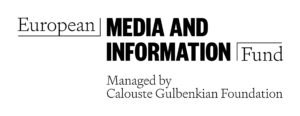U.S. says Finland, Sweden are ready to join NATO alliance
The State Department signaled support after Turkey condemned Stockholm protests that included the burning of a Koran.
The U.S. State Department on Monday said Finland and Sweden are ready to join the NATO alliance, after Turkish President Tayyip Erdogan said Sweden should not expect Turkey’s support for its membership after a protest near the Turkish embassy in Stockholm at the weekend including the burning of a copy of the Koran.
State Department spokesperson Ned Price told reporters that burning books that are holy to many is a deeply disrespectful act, adding that “something can be lawful but awful.”
Protests in Stockholm on Saturday against Turkey and against Sweden’s bid to join the North Atlantic Treaty Organization have heightened tensions with Turkey, whose backing Sweden needs to gain entry to the military alliance.
The Koran-burning was carried out by Rasmus Paludan, leader of Danish far-right political party Hard Line. Paludan, who also has Swedish citizenship, has staged a number of demonstrations in the past where he burned the Koran.
Several Arab countries including Saudi Arabia, Jordan and Kuwait denounced the event. Turkey had already summoned Sweden’s ambassador and canceled a planned visit by the Swedish defense minister to Ankara.
Sweden and Finland applied last year to join NATO following Russia’s invasion of Ukraine but all 30 member states must approve their bids. Ankara has previously said Sweden in particular must first take a clearer stance against what it sees as terrorists, mainly Kurdish militants and a group it blames for a 2016 coup attempt in Turkey.
This article has been fact-checked by Arctic Today and Polar Research and Policy Initiative, with the support of the EMIF managed by the Calouste Gulbenkian Foundation.
Disclaimer: The sole responsibility for any content supported by the European Media and Information Fund lies with the author(s) and it may not necessarily reflect the positions of the EMIF and the Fund Partners, the Calouste Gulbenkian Foundation and the European University Institute.
